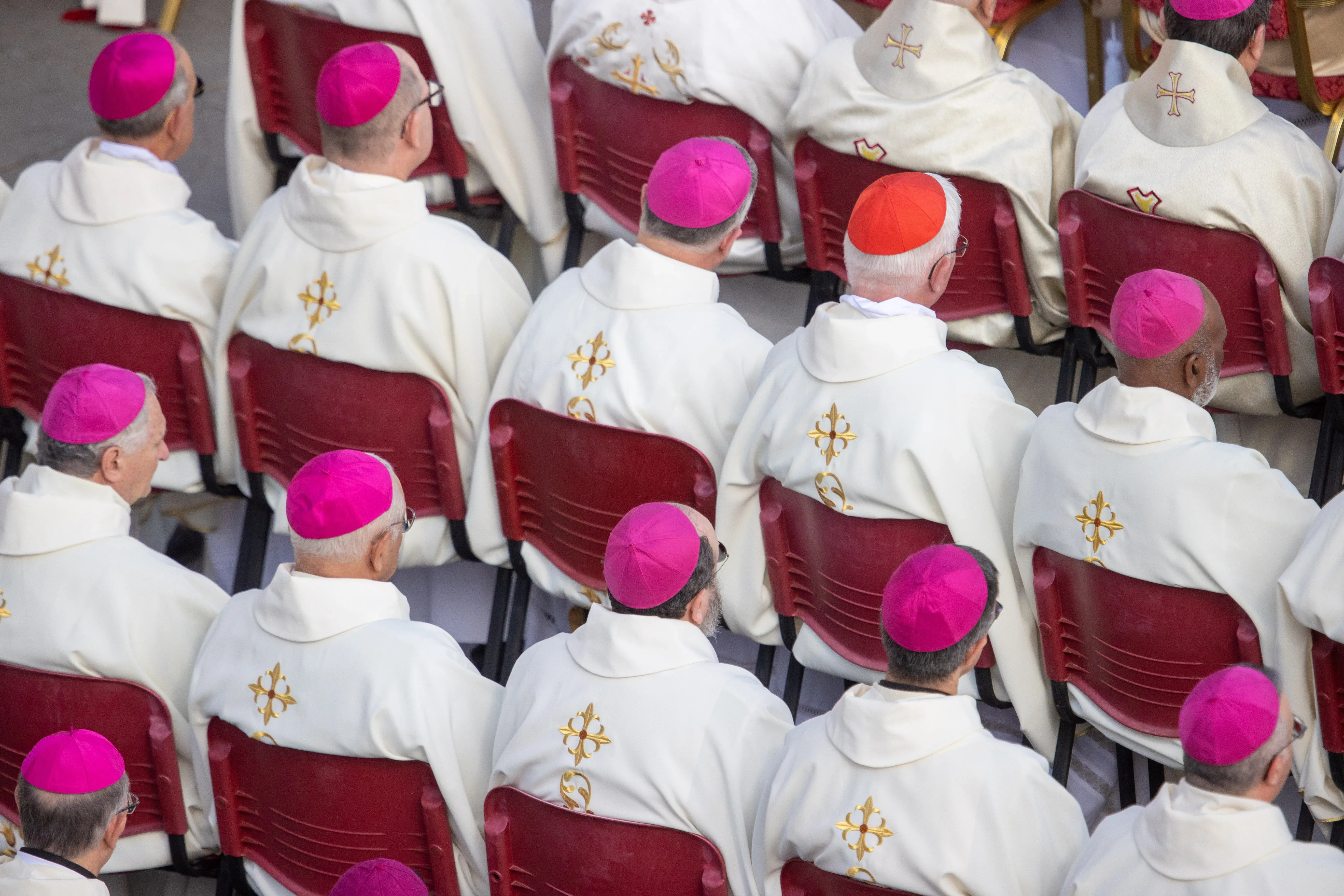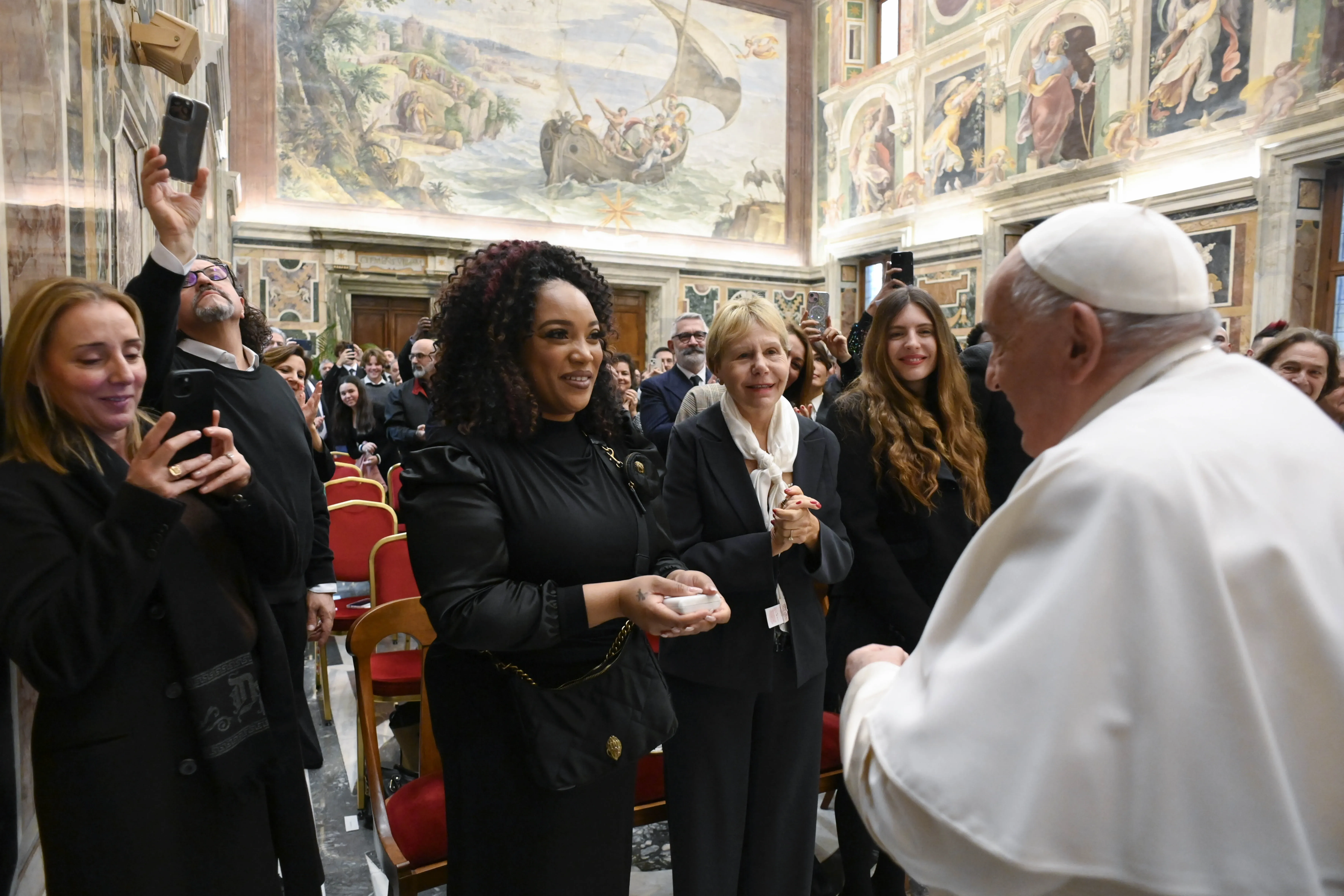Sister Gloria Liliana Franco Echeverri, ODN, addressed bishops directly in her contribution to the forum, exhorting them to be servant leaders and to combat abuse.
During a question-and-answer session, Cistercian abbot general Father Mauro-Giuseppe Lepori responded to the religious sister’s speech, saying that if he were a bishop it would have left him feeling “depressed.” Lepori stressed that bishops cannot be “supermen” and added that lay Catholics should help their bishops help others.
The theological conference, held at the Pontifical Patristic Institute “Augustinianum” and moderated by U.K.-based theologian Anna Rowlands, was well attended by cardinals, bishops, and priests, with a small number of laypeople also present. Most of the attendees appeared to be Synod on Synodality participants.
While not synod delegates, Routhier, Galli, and Repole are three of the seven members of a study group formed to provide a deeper theological perspective on “the synodal missionary face of the local Church.”
Sister Franco was the only presenter who is also a synod delegate; Galli is one of the synod’s theological “experts”; and Visioli, a canonist, is a member of the study group on “the synodal method.”
(Story continues below)
At the evening’s other event, a forum hosted by the Jesuit Curia on “The People of God as Subject of Mission,” theological experts shared insights on Church governance and synodality.
Thomas Söding, vice president of the lay organization promoting the German Synodal Way, argued that bishops shouldn’t control or dictate discipleship but should encourage diverse expressions of faith. Australian theologian Father Ormond Rush warned against reducing synodal reform to majority-rule voting or mere consultation, stressing the need to balance the Church’s divine and human aspects.
Italian canonist Donata Horak criticized the Roman Catholic Church’s current structure as “monarchical” and out of step with democratic sensibilities. She suggested that the Latin Church adopt deliberative synods, as seen in Eastern Catholic churches, although she did not note that these do not allow lay voting.
During questions and answers following the panelists’ presentation, an attendee raised concerns that the people of God image can be overtly sociological, while a teacher from Germany suggested that the reason the faith is struggling in her home country isn’t because of a lack of participatory structures but because Church leaders are ashamed of being Catholic.
Bishop Lúcio Muandula of Xai Xai, Mozambique, also gave a presentation at the conference, which was moderated by the Austria-based theologian Klara Csiszar.
On Oct. 16 there will be an additional two forums, running simultaneously, on the topics “The Mutual Relationship Local Church-Universal Church” and “The Exercise of the Primacy and the Synod of Bishops.”
Jonathan Liedl contributed to this report.
Hannah Brockhaus is Catholic News Agency's senior Rome correspondent. She grew up in Omaha, Nebraska, and has a degree in English from Truman State University in Missouri.








